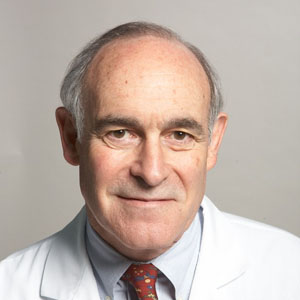Related Research Articles

Borderline personality disorder (BPD), also known as emotionally unstable personality disorder (EUPD), is a personality disorder characterized by a long-term pattern of intense and unstable interpersonal relationships, distorted sense of self, and strong emotional reactions. Those affected often engage in self-harm and other dangerous behaviors, often due to their difficulty with returning their emotional level to a healthy or normal baseline. They may also struggle with dissociation, a feeling of emptiness, and a fear of abandonment.

Schizoid personality disorder is a personality disorder characterized by a lack of interest in social relationships, a tendency toward a solitary or sheltered lifestyle, secretiveness, emotional coldness, detachment, and apathy. Affected individuals may be unable to form intimate attachments to others and simultaneously possess a rich and elaborate but exclusively internal fantasy world. Other associated features include stilted speech, a lack of deriving enjoyment from most activities, feeling as though one is an "observer" rather than a participant in life, an inability to tolerate emotional expectations of others, apparent indifference when praised or criticized, a degree of asexuality, and idiosyncratic moral or political beliefs.

Avoidant personality disorder (AvPD) or Anxious personality disorder is a Cluster C personality disorder characterized by excessive social anxiety and inhibition, fear of intimacy, severe feelings of inadequacy and inferiority, and an overreliance on avoidance of feared stimuli as a maladaptive coping method. Those affected typically display a pattern of extreme sensitivity to negative evaluation and rejection, a belief that one is socially inept or personally unappealing to others, and avoidance of social interaction despite a strong desire for it. It appears to affect an approximately equal number of men and women.
Schizotypal personality disorder, also known as schizotypal disorder, is a cluster A personality disorder. The Diagnostic and Statistical Manual of Mental Disorders (DSM) classification describes the disorder specifically as a personality disorder characterized by thought disorder, paranoia, a characteristic form of social anxiety, derealization, transient psychosis, and unconventional beliefs. People with this disorder feel pronounced discomfort in forming and maintaining social connections with other people, primarily due to the belief that other people harbor negative thoughts and views about them. Peculiar speech mannerisms and socially unexpected modes of dress are also characteristic. Schizotypal people may react oddly in conversations, not respond, or talk to themselves. They frequently interpret situations as being strange or having unusual meanings for them; paranormal and superstitious beliefs are common. Schizotypal people usually disagree with the suggestion that their thoughts and behaviors are a 'disorder' and seek medical attention for depression or anxiety instead. Schizotypal personality disorder occurs in approximately 3% of the general population and is more commonly diagnosed in males.

Mount Sinai Hospital, founded in 1852, is one of the oldest and largest teaching hospitals in the United States. It is located in East Harlem in the New York City borough of Manhattan, on the eastern border of Central Park stretching along Madison and Fifth Avenues, between East 98th Street and East 103rd Street. The entire Mount Sinai health system has over 7,400 physicians, as well as 3,919 beds, and delivers over 16,000 babies a year. In 2023, the hospital was ranked 23rd among over 2,300 hospitals in the world and the best hospital in New York state by Newsweek. Adjacent to the hospital is the Mount Sinai Kravis Children's Hospital which provides comprehensive pediatric specialties and subspecialties to infants, children, teens, and young adults aged 0–21 throughout the region.
Helen S. Mayberg was born in 1956 in California. She is an American neurologist. Mayberg is known in particular for her work delineating abnormal brain function in patients with major depression using functional neuroimaging. This work led to the first pilot study of deep brain stimulation (DBS), a reversible method of selective modulation of a specific brain circuit, for patients with treatment-resistant depression. As of August 2019, she has published 211 original peer-reviewed articles, 31 books and book chapters, and acted as principal investigator on 24 research grants. Mayberg is coinventor with Andres Lozano of “Method for Treating Depression Mood Disorders and Anxiety Disorders using Neuromodulation,” US patent 2005/0033379A1. St. Jude Medical Neuromodulation licensed her intellectual property to develop Subcallosal Cingulate Deep Brain Stimulation for Treatment-Resistant Unipolar and Bipolar Depression for the treatment of severe depression. As of 2018, Mayberg holds positions as Professor of Neurology and Neurosurgery and Professor, Psychiatry and Neuroscience, both at Mount Sinai Medical School, and Professor of Psychiatry, Emory University; Emory University Hospital. Since 2018, she has served as Director, Nash Family Center for Advanced Circuit Therapeutics at the Icahn School of Medicine at Mount Sinai.

Valentín Fuster Carulla, 1st Marquess of Fuster is a Spanish cardiologist and aristocrat.

Kenneth L. Davis is the executive vice chairperson of the board of trustees at the Mount Sinai Health System in New York City, and an American author and medical researcher who developed the Alzheimer's Disease Assessment Scale, the most widely used tool to test the efficacy of treatments for Alzheimer's disease designed specifically to evaluate the severity of cognitive and noncognitive behavioral dysfunctions characteristic to persons with Alzheimer's disease. His research led to four of the first five FDA-approved drugs for Alzheimer's.

Dennis S. Charney is an American biological psychiatrist and researcher, with expertise in the neurobiology and treatment of mood and anxiety disorders. He is the author of Neurobiology of Mental Illness, The Physician's Guide to Depression and Bipolar Disorders and Molecular Biology for the Clinician, as well as the author of over 600 original papers and chapters. In 2022, he was listed #52 on Research.com's "Top Medicine Scientists in the United States," with an h-index of 194 with 146,109 citations across 651 publications. Charney is known for demonstrating that ketamine is effective for treating depression. Ketamine's use as a rapidly-acting anti-depressant is recognized as a breakthrough treatment in mental illness.
Personality disorders (PD) are a class of mental disorders characterized by enduring maladaptive patterns of behavior, cognition, and inner experience, exhibited across many contexts and deviating from those accepted by the individual's culture. These patterns develop early, are inflexible, and are associated with significant distress or disability. The definitions vary by source and remain a matter of controversy. Official criteria for diagnosing personality disorders are listed in the sixth chapter of the International Classification of Diseases (ICD) and in the American Psychiatric Association's Diagnostic and Statistical Manual of Mental Disorders (DSM).
The mainstay of management of borderline personality disorder is various forms of psychotherapy with medications being found to be of little use.

Robert J. Desnick is an American human geneticist whose basic and translational research accomplishments include significant discoveries in genomics, pharmacogenetics, gene therapy, personalized medicine, and the treatment of genetic diseases. His translational research has led to the development of the enzyme replacement therapy (ERT) and the chaperone therapy for Fabry disease, ERT for Niemann–Pick disease type B, and the RNA Interference Therapy for the Acute Hepatic Porphyrias.
Joseph D. Buxbaum is an American molecular and cellular neuroscientist, autism researcher, and the Director of the Seaver Autism Center at the Icahn School of Medicine at Mount Sinai. Buxbaum is also, along with Simon Baron-Cohen, the co-editor of the BioMed Central journal Molecular Autism, and is a member of the scientific advisory board of the Autism Science Foundation. Buxbaum is a Professor of Psychiatry, Neuroscience, and Genetics and Genomic Sciences. He is also the Vice Chair for Research and for Mentoring in the Department of Psychiatry at the Icahn School of Medicine at Mount Sinai.

Prabhjot Singh is an American scientist, physician and healthcare researcher.
Gregor Hasler is a Swiss psychiatry researcher, psychiatrist and psychotherapist. He is professor and chair of psychiatry and psychotherapy at the University of Fribourg in Switzerland. His research areas covers stress, depression, bipolar disorders, and eating disorders.

The James J. Peters VA Medical Center,, is a US Department of Veterans Affairs hospital complex located at 130 West Kingsbridge Road in West Fordham, Bronx, New York City. The hospital is the headquarters of the Veterans Integrated Service Networks New York/New Jersey VA Health Care Network. This network is also the parent network to VA New York Harbor Healthcare System.
Robert Frank Krueger is Hathaway Distinguished Professor of Clinical Psychology and Distinguished McKnight University Professor in the Department of Psychology at the University of Minnesota. Robert attended the University of Wisconsin-Madison and completed his clinical internship at Brown University. He is known for his research on personality psychology, clinical psychology, quantitative psychology, developmental psychology, personality disorders, behavioral genetics, and psychopathology. According to Krueger, the goal of his work is to "reduce the burden these problems place on society by working to understand why some people experience psychopathology, while others remain resilient." Krueger primarily studies the comorbidity between personality disorders and anxiety, as well as twins, heritability, personality development, conduct disorder, and antisocial personality disorder. He is the co-editor-in-chief of the Journal of Personality Disorders. He received the American Psychological Association's Award for Distinguished Scientific Early Career Contributions to Psychology in 2005. Krueger helped work on the section III diagnostic criteria of the Personality and Personality Disorders in the DSM-5. He is also one of the highest cited researchers according to the Web of Science.
René Sylvain Kahn is a neuropsychiatrist and the Esther and Joseph Klingenstein Professor and System Chair of Psychiatry at the Icahn School of Medicine at Mount Sinai in the United States, a position he has held since 2017. He previously served as Professor of Psychiatry and Director of the Brain Center Rudolf Magnus at the University Medical Center Utrecht in the Netherlands. Kahn is recognized for his research on the neurobiology of schizophrenia. He served as a former president of the Schizophrenia International Research Society and was elected to the Royal Netherlands Academy of Arts and Sciences in 2009. He received the Neuropsychopharmacology Award from the European College of Neuropsychopharmacology in 2014.

Iliyan Stoyanov Ivanov is a Bulgarian American psychiatrist.

Thomas A. Ban was a Hungarian-born Canadian psychiatrist, psychopharmacologist, academic, researcher and theorist.
References
- ↑ "In Memoriam". ACNP. Archived from the original on April 13, 2022. Retrieved 2022-08-29.
- ↑ "Raymond Siever". Harvard Gazette. 2006-02-23. Retrieved 2023-05-30.
- ↑ "50 Years of U.S. Presidential Scholars: In Pursuit of Excellence" (PDF). U.S. Presidential Scholars Alumni Association. 2014. pp. 101–102. Retrieved May 30, 2023.
- ↑ "Dr. Larry J. Siever MD". U.S. News & World Report. Archived from the original on August 23, 2022. Retrieved August 29, 2022.
- 1 2 Davis, Kenneth L.; Kahn, René S.; New, Antonia; Aronson, Andrew (March 29, 2021). "In memoriam-Larry J. Siever, M.D". Neuropsychopharmacology. 46 (7): 1394. doi: 10.1038/s41386-021-00999-3 . ISSN 1740-634X. PMC 8134434 .
- ↑ https://www.mountsinai.org/about/newsroom/2011/larry-j-siever-md-recognized-by-his-peers-for-contributions-to-personality-disorders-research
- ↑ "Larry J. Siever: H-index & Awards - Academic Profile". Research.com. Archived from the original on June 30, 2022. Retrieved 2022-08-29.
- ↑ "Visiting Professors". bergenregional.com. Archived from the original on June 30, 2022. Retrieved 2022-06-30.
- ↑ "Larry J. Siever, MD". www.psychiatrictimes.com. Archived from the original on August 5, 2021. Retrieved 2022-08-29.
- 1 2 "Larry J. Siever, MD, Recognized by His Peers for Contributions to Personality Disorders Research | Mount Sinai - New York". Mount Sinai Health System. Archived from the original on March 13, 2022. Retrieved 2022-08-29.
- ↑ "ISSPD Awards - ISSPD". 2022-09-13. Retrieved 2023-05-30.